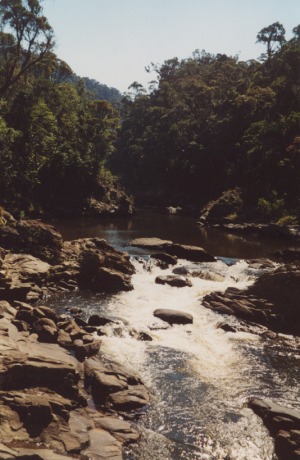
Article on co-operation between University of Helsinki and Ranomafana National Park
|
ecological and health-related changes in the threatened
rainforest of Madagascar (EComada)
Objective and description of the project
Madagascar is a biodiversity 'hot spot' with a high degree of
endemism, but this richness is vanishing because human activities alter
landscapes and cause species extinctions. One of the last, relatively
pristine rainforests in Madagascar is the Ranomafana National Park (RNP,
area 43 500 ha). RNP forms an Integrated Conservation and Development
Project (ICDP) with the aim to manage natural resources both for
biodiversity and for the benefits of local inhabitants. The aim of this multidisciplinary ECOMADA research project
combining ecological, social, and health studies is to assess the
feasibility of the ICDP approach and to examine how well nature
conservation and improvement of human health conditions have been
achieved in RNP. The proposed research approaches the issue from two
angles: (1) assessment of biodiversity conservation by using insects (ground-beetles
also called carabids) as bioindicators for developing tools for
biodiversity assessment and maintenance, and (2) assessment of changes
and expected improvements in human health conditions as a result of the
establishment of the RNP, and for planning of activities to further
improve health conditions. Research will be done in collaboration between the University of Helsinki
(prof. Jari Niemelš and
MSc Johanna Rainio (e-mail: kjheinon@mappi.helsinki.fi), Dept. of Ecology and Systematics; Msc
Kaisa
Korhonen and dr. Ossi
Rahkonen, Dept. of Social Policy), State Univ. of New York (prof.
Patricia Wright, Dept. of Anthropology), California Academy of Sciences
(dr. David Kavanaugh, Dept. of Entomology), and several Malagasy
partners (e.g. University of Antananarivo). Prof. Wright is responsible
for the overall on-site supervision. The Universities of Helsinki and
Antananarivo have an agreement of collaboration which will provide the
institutional framework for Finnish-Malagasy cooperation. RNP hosts a small research station, but research infrastructure will be
improved, as a new station will be completed. Part of its funding
is provided by the University of Helsinki which will give the Finnish
researchers an excellent opportunity to work in RNP.
|